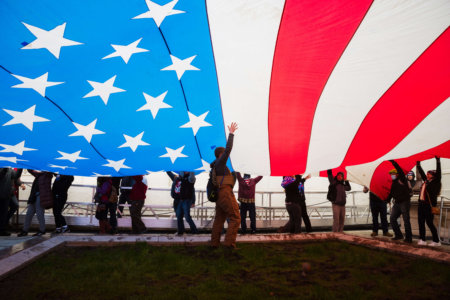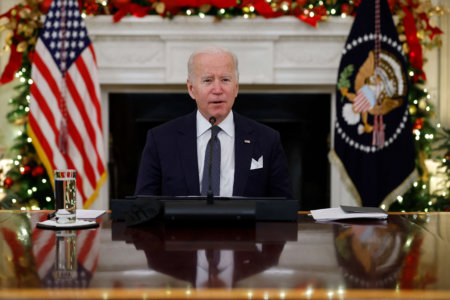
International students in the US face a myriad of challenges when settling into the country, something Yujin Kim from South Korea can attest to.
In an interview with Study International, the research analyst said it’s easy for international students in the US to feel different and out of place, which can affect their self-esteem. Kim struggled with her transition from South Korea to the US, which she says negatively impacted her mental health.
She penned her experiences into a memoir, “A Place to Take Root”, that addresses some of the common mental health struggles that international students in the US face.
We talk to Kim about her journey, what it feels like to be part of a minority group of international students in the US, and what are some of the common obstacles foreign students face.

Studying in the US helped Kim to improve her English. Source: Yujin Kim
Why did you choose to study abroad in Canada and the US? Can you tell us about your experience?
I knew there were a lot of opportunities in the US, in terms of education and job opportunities. I also wanted to work for an international organisation since I was an elementary school student.
Also, the education system in the US would help me improve my English and help me get used to diversity. As for Canada, I went there as an exchange student and I knew it was pretty similar to the US, which was great.
In your memoir, you write about social barriers and the struggles international students in the US face. Can you tell us more about it?
So, I mainly talk about mental health challenges international students in the US face but I believe those are connected to the social and systematic issues they experience. One main theme is future uncertainty — like dealing with their student visas not being permanent.
It’s almost practically impossible for many students to graduate and get a job in the US even though a company hires them because of their visa status. This uncertainty can take a toll on international students in the US and it’s interesting because a large percentage come from Asian countries.
These countries are accustomed to not getting psychological health or reaching out for help when needed. I think dealing with these issues openly is very important.

Studying abroad gave Yujin Kim the chance to get used to diversity. Source: Yujin Kim
How do you advocate the importance of mental health to international students?
In my book, I wrote about the consequences of me not speaking up when I tried to figure everything out on my own. I realised it’s not an ideal solution.
When you reach out to people is when you grow together and I feel like sharing my stories in this memoir is kind of like a niche initiative to that. It’s not easy for an East Asian person to share their mental health challenges, so hopefully, this helps provide a space for them to talk.
Do you think racism is still prevalent in the US?
In school, you are kind of in a safe place — like a bubble — because there are measures in place for things like bullying, racism, etc. However, the atmosphere outside the classroom (depending on where you live) is where you are more likely to experience such things.
There are a lot of things going on related to Asian hate crimes. The US has this conception that the Asian communities brought a lot of uncertainties to the country. Things like COVID-19, job insecurities, education and so on.

Pursuing her study abroad dream came with some hurdles. Source: Yujin Kim
What’s one thing most graduates in your uni course didn’t know until they started their careers?
I can only speak from experience but what I realised after I began my career is that if I really tried my best and it didn’t work out, something better will be waiting for me. I learnt this because I really wanted to get a job during my studies but it never happened.
I graduated without securing a job and during the peak of the pandemic. Two months later, I got my dream job at an international organisation.
What do you wish you studied more of and why?
So, right now, I do a lot of policy analysis and even with a master’s in economics we don’t really get to practice how to apply the knowledge to real-life problems. That’s something I wish I got more of during my studies.
Walk us through your career.
I’m actually a research assistant and I joined an international organisation in July 2020. I work with data mostly to understand and tackle global policy problems.
Nowadays, we do a lot of research on issues like COVID-19-related spending and climate change, recovery, etc. Though, my main job scope is to analyse and produce data exhibits for publications.

International students can find authentic authentic Korean food in the US. Source: Yujin Kim
What’s your advice for other graduates and international students in the US who want to apply for the same job as you?
For my specific position, it’s a research analyst one, is to study in the field of economics as it’s a requirement. Besides that, I would recommend working on your data skills and econometrics skills because those are tangible skills that you can show employers.
When you develop those skills, use cross-country analyses if you’re aiming to work in an international organisation.
If you could go back in time for a one-on-one mentoring session with yourself, what would your advice be and why?
The big one would be “own who I am”. I think as an international student or as someone coming from another country, it’s really easy to feel different and out of place. I created a lot of anxiety for myself and it affected my self-esteem as well.
How did you spend your first paycheck?
That’s an interesting question. I didn’t go on a big shopping spree or anything like that but I put it in my savings and took care of my previous balance on my credit card. However, in my third or fourth paycheck, I got my mother an iPad.
When you’ve been a student for such a long time, you really want to give back to your parents. It’s a really nice thing.
What matters more to you: work satisfaction, salary, social life, or a work/life balance and why?
I would say work satisfaction and a work-life balance. Work satisfaction because when you’re working for around 40 hours and it’s draining, it’s not worth it if it doesn’t make you happy. I wouldn’t do it even if I got a higher salary than my current one.
For work-life balance, I value it because of my health and my close relationships and taking time to exercise and spend time with loved ones. If I don’t do that, I don’t think I could do well at work.
What are your favourite Korean spots to eat in Washington, D.C.?
There’s this place called “BUL Korean Restaurant & Bar” and it serves fusion food. This place has dishes like fries and kimchi which is a little weird but once I tried it, I loved it. Virginia has a lot of authentic Korean food though!










